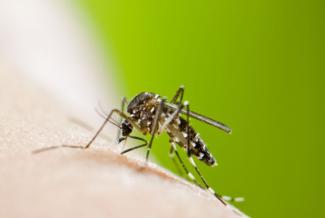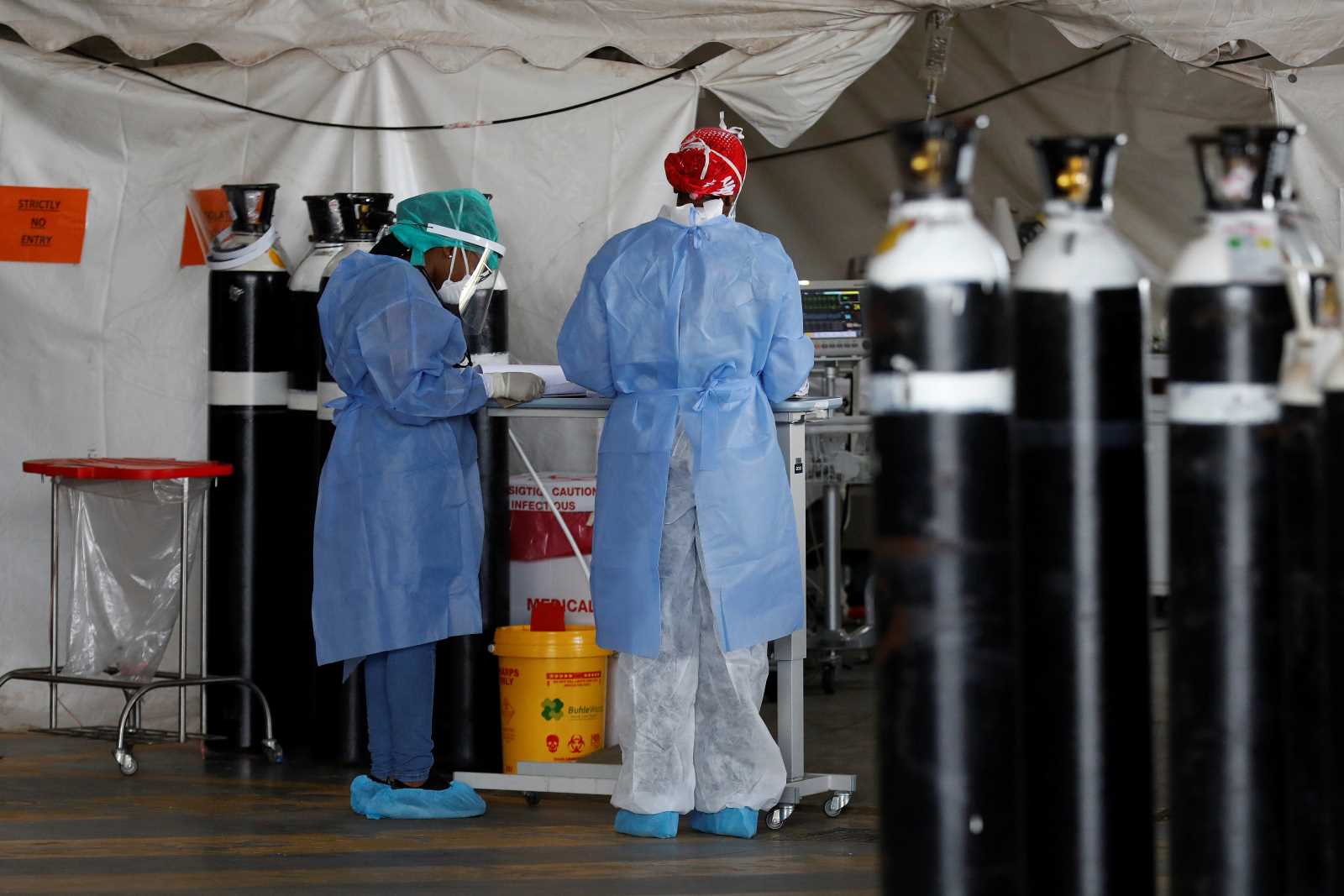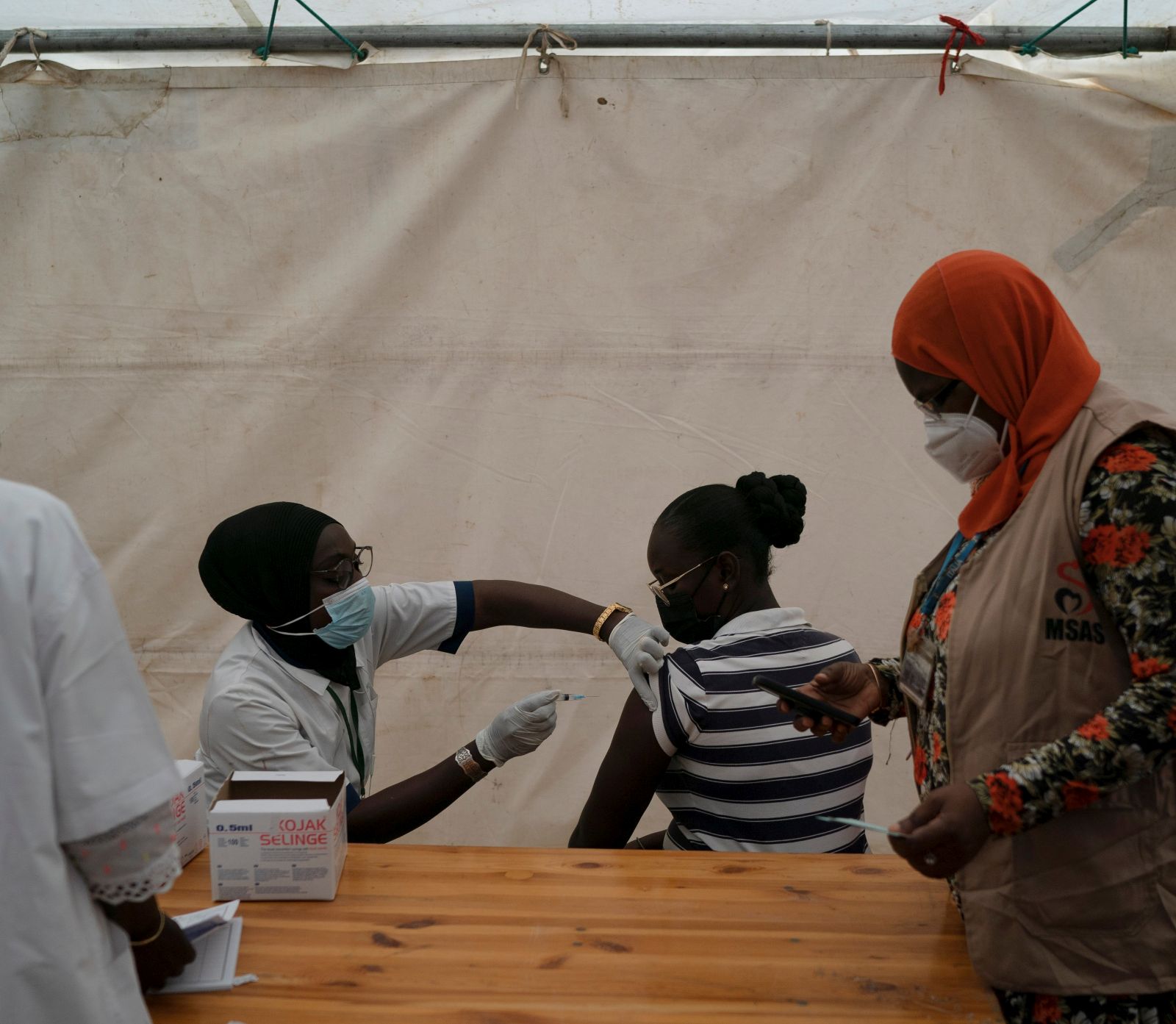Health
Global health challenge

Many infectious diseases can be treated better today than even a few years ago. Moreover, the High-Level Panel on Access to Medicines (2016), which was convened by UN Secretary General Ban Ki-moon, notes in its recently published final report (September 2016) that preventative measures against bacteria, viruses or parasites have become more reliable. Macrotechnology and nanotechnology are advancing as well.
However, the UN authors criticise that not everyone is benefiting from such progress. According to them, many people – especially in countries with low and medium incomes – do not have access to medical treatment and medicines. High prices for medicines plunge many people into poverty. Again and again, the human right to health clashes with the rights of investors, the experts argue.
The UN Panel does not challenge the fundamental interest of investors to make profit, nor does it question the right to intellectual property. However, it calls for a sensible balance with the human right to health care, which is in line with the UN’s Sustainable Development Goals (SDGs).
In order to reach the SDGs, the UN report wants governments to act at several levels. Governments should assume responsibility and ensure transparency in the health sector. It is necessary to monitor services to ensure that they fulfil human rights. Results should be published, according to the report. Furthermore, governments should establish databases on patents so research results are made available to the public.
According to the UN document, intellectual property deserves protection. The authors point out however, that according to the rules of the World Trade Organization (WTO), governments can grant compulsory licenses for the production of patent-protected substances if that is necessary to safeguard public health. They should use this right.
The experts appreciate private-sector corporations engaging in voluntary license agreements to make medicines affordable in developing countries. In doing so, however, the corporations set certain conditions for particular countries or regions of the world. It is obvious, moreover, that the negotiating power of businesses increases when governments do not make use of their right to grant compulsory licenses.
The UN authors recommend investing more in research and development (R&D). However, this task should not be left to industry alone. The UN Panel emphasises the significance of publically financed research and calls for it to be expanded. It points out that scientists should pay more attention to diseases that have up to now been neglected because treatments do not look lucrative to pharmaceutical companies. So far, many tropical diseases are virtually irrelevant for market-orientated research. Accordingly, an appropriate incentive system cannot only rely on patents which secure high profits for innovators, provided that patients have enough purchasing power or are covered by health insurances.
For example, one-off premiums for successful research results could be an alternative to intellectual property rights. “Milestones” could be defined, and those who reach them, would be paid a certain amount of money. As a push-mechanism, the UN Panel suggests that governments should disburse research grants in advance. The experts identify interesting options for cooperation with investment funds, public-private partnerships and other forms of networking.
Another central concern of the report is the staffing of the health-care sector. Doctors and nurses are needed so patients receive care according to up-to date knowledge.
Fighting antibiotics resistance
On behalf of the British government, scientists have been considering options to tackle antibiotics resistance which is increasing worldwide (also note essay by Christian Wagner-Ahlfs). The economist Jim O’Neill led the Review on Antimicrobial Resistance (AMR). The final report was published in May 2016.
It views resistances as a global problem. The effects are evident worldwide – and they threaten future generations. As O’Neill points out, the poorer countries are the most affected ones.
The AMR report bemoans that antibiotics are often given out unnecessarily in industrialised countries while they are unavailable in other places. Unnecessary use of antibiotics by humans and animals should be avoided, it states, and more precise diagnoses would help to achieve this. Too many antibiotics are used in animal keeping, and this trend accelerates the development of resistant bacteria. Global campaigns should raise awareness of the issue, according to the AMR Review.
In any case, new antibiotics must be developed to replace old drugs to which bacteria have become resistant. The report argues that investment should not only be made in the development of new antibiotics, but also in research into ongoing treatments. Like the UN Panel, this group of experts expresses itself in favour of creating new incentives for investors than only relying on patents. Relevant options include international consortia, public-private partnerships and establishing a global fund for non-commercial research.
The researchers praise existing programmes that counteract antibiotics resistance – for example the United Kingdom’s Fleming Fund or the Global Innovation Fund. Governments must rise to the challenge, and global funds must be mobilised, according to the AMR report.
Neglected tropical diseases
It has long been recognised that more must be done to fight tropical diseases (see also article by Sheila Mysorekar). In 2015, the WHO published a status report on the issue and listed 17 neglected tropical diseases: buruli ulcer, chagas, dengue, dracunculiasis (Guinea-worm disease), echinococcosis, foodborne trematodiases, human African trypanosomiasis (sleeping sickness), leishmaniasis, leprosy (Hansen's disease), lymphatic filariasis, onchocerciasis (river blindness), rabies, schistosomiasis, soil-transmitted helminthiases, taeniasis/cysticercosis, trachoma and yaws (endemic treponematoses).
The WHO views these diseases as a global challenge because, due to urbanisation, migration and environmental change, they are spreading to areas where they were not present so far. They are transmitted by arthropods such as insects, spiders or crabs. These vectors should be controlled, and to achieve that, human beings, animals and the environment must be taken into consideration holistically.
In order to fight tropical diseases, the WHO is pushing for key interventions:
- innovative and intensified disease management,
- more preventative treatment (including, for example, chemotherapy),
- vector management in line with environmental principles,
- veterinary public health (VPH) services and
- provision of appropriate water and sanitation infrastructure.
Like the High-Level Panel of the UN and the British AMR Review, the WHO emphasises the links between poverty and disease. Neglected diseases occur mainly in tropical countries, which generally are not among the highly developed ones. Market dynamics alone will not solve the problems. By 2030, the WHO wants to create the conditions in cooperation with the World Bank to ensure that:
- at least 80 % of required essential health care is guaranteed all over the world, and
- those who provide the services can be sure that they will be paid out of pocket.
The WHO is in favour of international investors cooperating more closely with people at the grassroots level. Tropical diseases should become an integral issue for national health policies. Moreover, local investors should be mobilised.
The WHO report does not only mention problems, but also successes. More than 70 countries have adopted strategies to contain tropical diseases. More than 800 million people were healed from such diseases in 2012 and 2013. A network of African countries have reduced the occurrence of African trypanosomiasis by up to 90 %.
Lea Diehl is a freelance author and studies cultural anthropology at Marburg University.
lea.diehl@posteo.de
Sources
Review on Antimicrobial Resistance, 2016: Tackling drug-resistant infections globally – Final report and recommendations.
http://amr-review.org/sites/default/files/160518_Final%20paper_with%20cover.pdf
WHO, 2015: Investing to overcome the global impact of neglected tropical diseases – Third WHO report on neglected tropical diseases.
http://apps.who.int/iris/bitstream/10665/152781/1/9789241564861_eng.pdf
United Nations Secretary-General’s High-Level Panel on Access to Medicines, 2016: Report - Promoting innovation and access to health technologies.
http://www.ip-watch.org/weblog/wp-content/uploads/2016/09/HLP-Access-to-Medicines-Final-Report-Sept-2016.pdf











